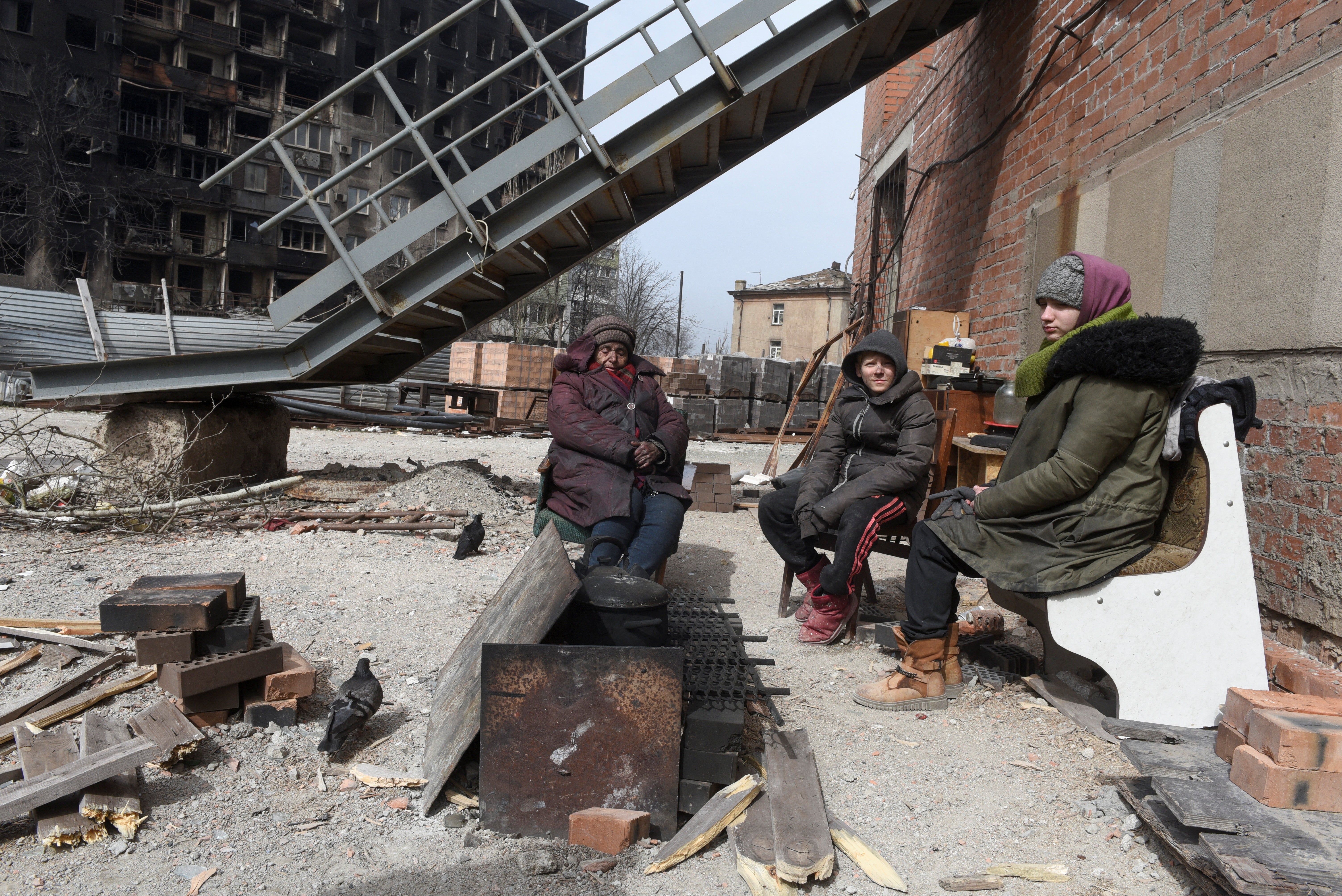Ukraine war of attrition could last ‘beyond months’, says top US expert
Next few weeks crucial in determining outcome of conflict, says David Kofman
Your support helps us to tell the story
From reproductive rights to climate change to Big Tech, The Independent is on the ground when the story is developing. Whether it's investigating the financials of Elon Musk's pro-Trump PAC or producing our latest documentary, 'The A Word', which shines a light on the American women fighting for reproductive rights, we know how important it is to parse out the facts from the messaging.
At such a critical moment in US history, we need reporters on the ground. Your donation allows us to keep sending journalists to speak to both sides of the story.
The Independent is trusted by Americans across the entire political spectrum. And unlike many other quality news outlets, we choose not to lock Americans out of our reporting and analysis with paywalls. We believe quality journalism should be available to everyone, paid for by those who can afford it.
Your support makes all the difference.A war of attrition between Russian and Ukrainian forces in the east of the country could drag on for months if not longer, a top US expert has warned.
As reports suggest Russia is shifting some of its forces away from Kyiv and apparently abandoning for now its dream of capturing the capital, it appears Moscow will seek to regroup in the Donbas, an area of eastern Ukraine that has for eight years been the location of low-level conflict between pro-Russian separatists and the Ukraine army.
It was a purported desire to protect Russian speakers in these areas, including Donetsk and Luhansk, that Vladimir Putin used as his justification for the so-called “special military operation” that has devastated Ukraine, forced millions to flee, and resulted in the deaths of thousands of Russian and Ukrainian soldiers.
Nato has claimed that between 7,000 and 15,000 Russian troops have been killed. It is unclear how many Ukrainian soldiers and civilians have lost their lives.
Michael Kofman, a longtime expert on the Russian military and Director of the Russia Studies Programme at the Center for Naval Analysis, a think tank based in Washington DC, said it had become clear for several weeks that Russian forces did not have the ability to take Kyiv.
Their initial plan had been a lightning strike to take the capital and replace the government with individuals approved by Moscow, he said. When that failed, it appeared they were trying to squeeze Kyiv, even as Russian forces continued to advance on two other axis of attack.
“It does appear Russian troops are withdrawing from the northern parts of Ukraine. And it looks like a retreat by them,” Mr Kofman told The Independent.
“And they most likely will redeploy their forces for concentration back in the Donbas.”
Mr Kofman said it was impossible to predict how long any fighting there would last.
He said Ukraine had the upper hand in terms of morale, its supply of volunteer fighters and the support of Nato. Yet, Russia had the advantage when it came to its heavy weaponry.
“It’s not clear that the Russian military is really set up and organised to fight a prolonged war,” he said.
“Ukraine’s fighting a war of national mobilisation. Russia doesn’t have substantial manpower, especially given the losses they’ve taken. The Ukrainian military has vast reserves of manpower, but grossly insufficient amounts of military equipment.”
He said it could be argued that either side had the advantage if the fighting in the Donbas turned into an extended war of attrition.
“Generally, it’s fair to say that Ukraine is winning this war, certainly at the political level which is where it counts. Now that Russia’s focused on the Donbas, the question is what’s going to happen in the next coming weeks, and whether or not they will be able to take the Donbas by a concentrated and reinforced campaign,” he said.

After that, what Russian tactics will be is very unclear, he said. It is possible Russia could claim a victory in the Donbas, or it could continue to push elsewhere.
He said the next few weeks would be crucial. “It’s very hard to predict anything other than that,” he said.
He said the fighting could go on for months. “It could go on well beyond on months,” he added.
Previously Mr Kofman had warned that if the conflict continued, Russia was likely to use more brutal tactics, as it attacked civilian areas and targets.
“We have been seeing the Russian military revert to using artillery fire, multiple-launch rocket systems and a lot of indiscriminate shelling of civilian areas, particularly where they get involved in urban warfare,” he told PBS News. “Urban warfare is very difficult. It consumes armies and forces. Russian military often relies on firepower, overwhelming firepower.”
Mr Kofman’s assessment came as negotiations to stop the fighting in Ukraine continued on Friday, even as renewed attempt to rescue civilians from the shattered city of Mariupol was thrown into jeopardy.
Meanwhile, Russia also accused the Ukrainians of a cross-border helicopter attack on a fuel depot.
The governor of Russia’s Belgorod region, Vyacheslav Gladkov, said a fiery raid on Russian soil by two helicopter gunships left two people wounded, though state oil company Rosneft denied anyone was hurt.
“Certainly, this is not something that can be perceived as creating comfortable conditions for the continuation of the talks,” said Kremlin spokesman Dmitry Peskov.
Additional reporting by Associated Press

Join our commenting forum
Join thought-provoking conversations, follow other Independent readers and see their replies
Comments